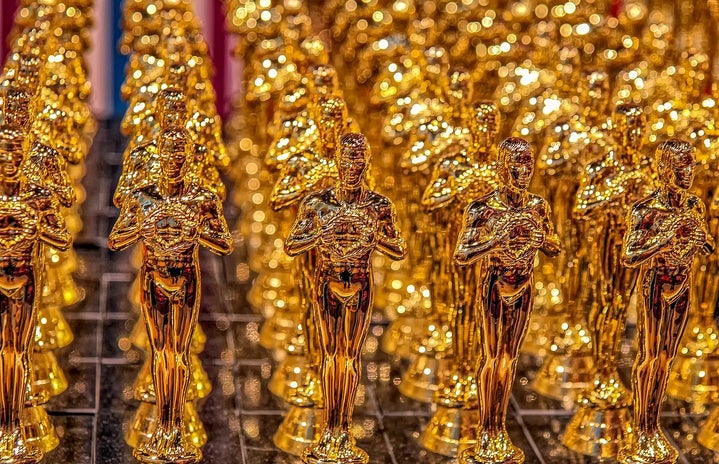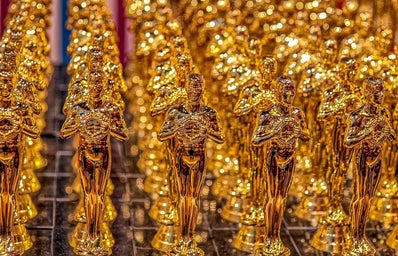Content Warning: The following article contains mentions of pedophilia and sexual assault, reader discretion is advised.
Last December, the film Poor Things was released and it was interesting, to say the least. It’s marketed as a feminist film, in which a woman embarks on an adventure to break free from society’s prejudices, find independence and freedom, and advocate for equality. As of the time of writing, it has won 104 awards, including 4 Academy Awards for Best Achievement in Costume Design, Best Achievement in Makeup and Hairstyling, Best Achievement in Production Design, and Best Performance by an Actress in a Leading Role (Emma Stone), and has become one of the most talked-about and praised movies of the year.
However, I find that this film is anything but a feminist movie. It’s quite problematic in its portrayal of feminism and liberty, and it’s time we discuss the topics that surround it.
I’d like to start by saying Poor Things was directed by Yorgos Lanthimos and written by Tony McNamara. Both of these individuals share one thing in common—the fact they are men. This is not to discredit male directors and writers, but why are we allowing men to make feminist movies or to create female narratives from a male perspective? This film is a vivid example of why we shouldn’t permit this, or rather, a reason why we should police these ideas more strictly.
This article will contain spoilers for the film Poor Things, be warned!
Bella Baxter, played by Emma Stone, and our protagonist, is a woman. To be more specific, she is an infant whose brain possesses a grown woman’s body. Bella was brought back to life by an unorthodox scientist who, after finding a pregnant woman’s body dead from suicide, chose to save the baby by inserting its brain inside the woman’s cranium. This concept in itself isn’t the problematic aspect of the movie; it’s how Bella is treated and presented throughout the film.
Bella is consistently sexualized during the movie, especially around the time she has the brain development and behavior of a baby. The creators might’ve wanted to explore feminism through sexual liberty, but it comes off as predatory because of her childish way of acting and lack of understanding of her actions. This is exemplified in a scene in which Bella explains how a man asked her what the softest part of the body is. She proceeds to answer his question by showing him, which led to him taking advantage of her and getting away with it because she didn’t know any better. Bella ends up being taken advantage of like this multiple times and the problem is never addressed. It just passes off as her being sexually free and doing as she pleases with her body, instead of holding the people at fault accountable.
Another moment in the film that shows off predatory behavior is when Max McCandles, played by Ramy Youssef, verbally expresses attraction towards Bella’s looks from the first time he meets her, even when she’s not yet capable of walking, speaking, or eating properly. He also agrees to marry her, knowing she has the mental capacity of a toddler at the time. Heads up, she ends up staying with this man at the end of the movie, even if it’s not clarified if it’s in a romantic way or not. She also goes off on a sex-filled adventure with the character Duncan Wedderburn, played by Mark Ruffalo, around the same time. You can’t tell me these sequences aren’t weird and I’m not the only one who thinks this way. For instance, Janet Arvia, in her article for Rebellious Magazine for Women, stated “There’s a word for having sex with someone who lacks the agency to consent and it’s not feminism,” which coincides with my point.
All of this happens before Bella becomes a prostitute, which is another problem entirely. Being a sex worker is not the problem; referring to it as the way for her to explore the world is. Bella shouldn’t be making this decision in the same way any minor shouldn’t, but further past that, there are many ways they could’ve depicted this that didn’t involve unnecessary graphic sex scenes. Besides, if the purpose of the movie was to be a feminist one, they had the perfect opportunity to show Bella the experiences of different women, but instead, they focused on her engagement in an array of uncomfortable sexual encounters with men. Sabeen Al-Khasib, in her article for The Pioneer, commented, “If female liberation through sexuality was the goal, then menstrual cycles, contraceptives, body hair, and such should’ve been mentioned, if not, the main focus.” Even if Bella herself wasn’t able to go through these processes, the women around her could, and even just mentioning the issue of sexually transmitted diseases would’ve been good, too.
The film, in general, had way too many unnecessary intimate scenes when the protagonist certainly shouldn’t have been partaking in them. This pattern just made it uncomfortable to watch and difficult to see the point of the movie at all. It was also missing key topics that would’ve aimed to make it a truly feminist movie. It’s a pity, considering the potential Poor Things had because of its amazing cinematography and wardrobe. If done differently, the plot could’ve portrayed an impactful message towards feminism. The writing and directing were off and it just ended up coming off as a sick male-gaze fantasy, rather than a feminist movie.
Let’s remember to appreciate, but also criticized, the media we consume because, like Josie Meléndez, a fellow Puerto Rican writer, expressed in her article for Screen Speck, “It’s easy to lose yourself in the pastels and the fabrics of it all because it is truly a visual feast to witness. Regardless of this, Poor Things remains superficial, refusing to explore further nuances of the feminism many praise it for somehow representing. It falls prey as another victim to the male gaze.” While it’s alright to recognize the movie for what it did well, it’s more important to criticize that which it could’ve done better.






